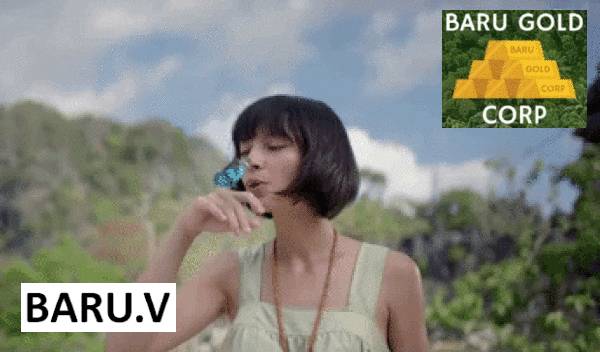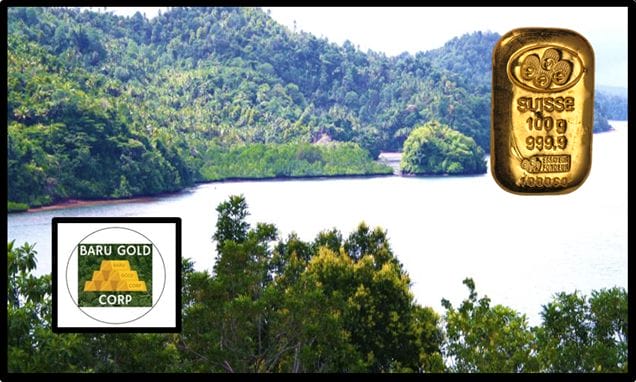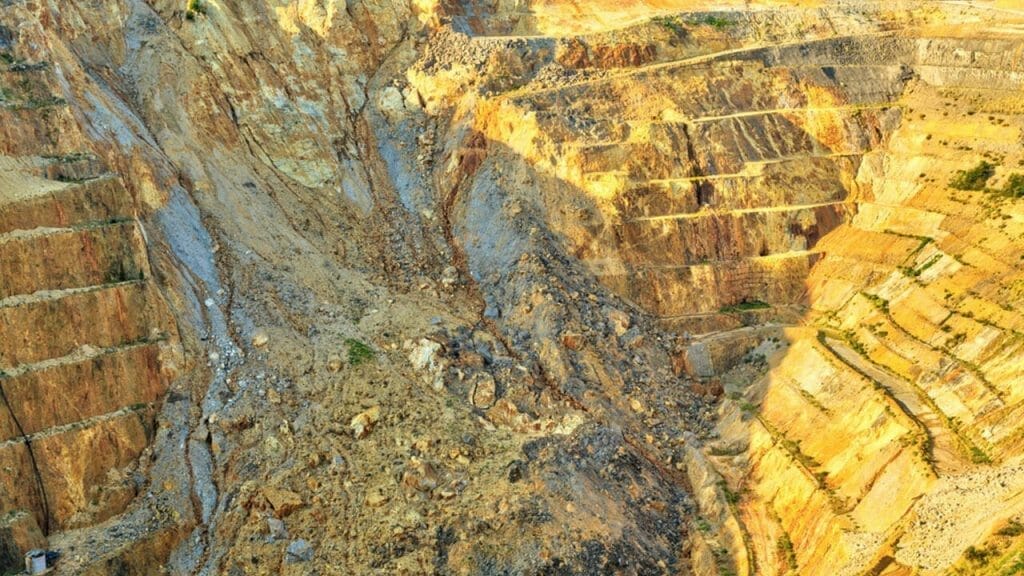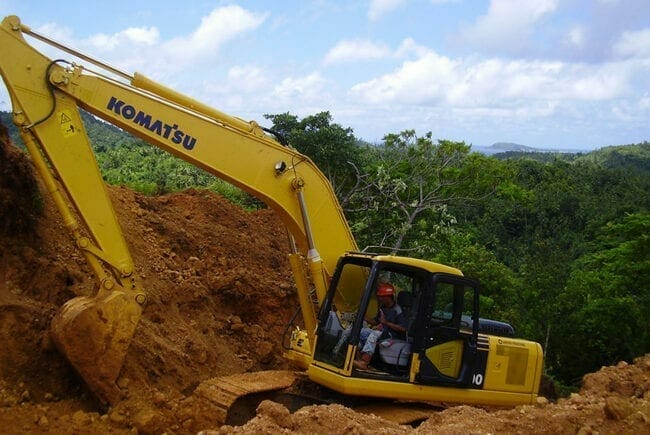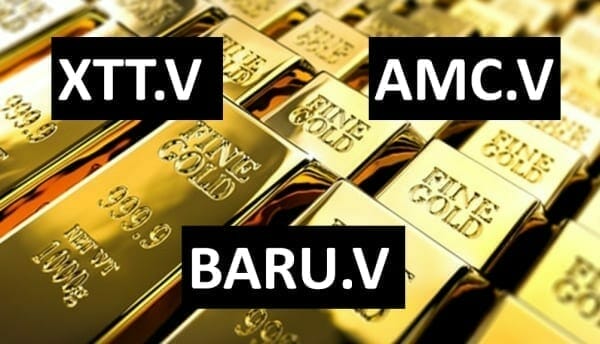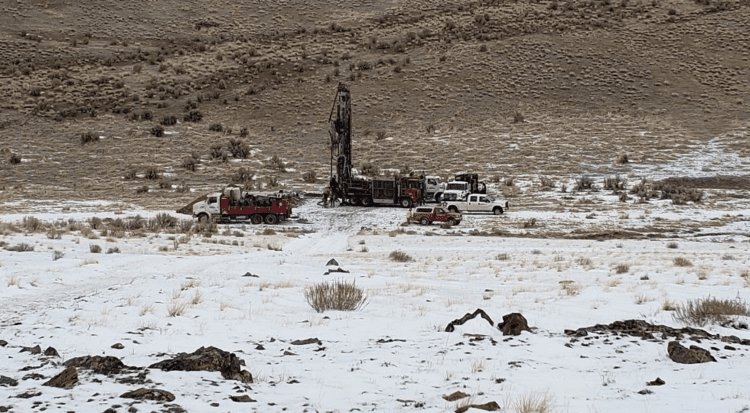On March 24, 2021, Baru Gold (BARU.V) updated shareholders on its Corporate Social Responsibility (CSR) campaign to improve the community on Sangihe Island where Baru’s gold project is located.
“BARU’s flagship asset—the Sangihe Gold Project—is being fast-tracked to production and should begin cash-flowing as early as Q2 of 2021,” wrote Equity Guru’s Greg Nolan on February 4, 2021.
“The February 3rd (milestone) headline…
Baru Gold Corp Receives Production Licence Upgrade
Baru now has the all-clear from the Indonesian Ministry of Energy and Mineral Resources to commence production at Sangihe.
Game on.
The Sangihe Gold Project consists of 42,000 hectares covering the southern half of Sangihe Island, located between the northern tip of Sulawesi Island (Indonesia) and the southern tip of Mindanao (Philippines).
Baru has a 70% working interest in the project—three Indonesian companies hold the remaining 30%. Baru, with its seasoned team of mine builders and rock kickers, is the project operator.” – End of Nolan
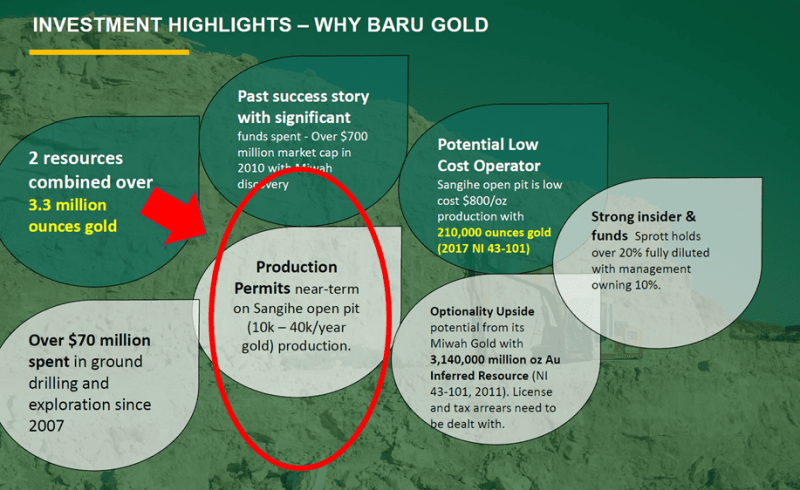
Meanwhile, the 2020 Fraser Institute Mining Survey puts Indonesia on a list of the 10 least attractive jurisdictions for investment – lumping it in with a toxic group that includes Venezuela and the Democratic Republic of Congo (DRC).
The Fraser Institute’s metrics include:
- Enforcement of regulations
- Uncertainty of environmental regulations
- Regulatory inconsistencies
- Legal system
- Taxation regime
- Disputed land claims
- Uncertainty concerning what areas will be protected as wilderness, parks, or archeological sites
- Infrastructure (includes access to roads, power availability)
- Socioeconomic agreements/community development
- Trade barriers
- Political stability
- Labor regulations/employment agreements/work disruptions
- Quality of the geological database
- Level of security threat of attack by terrorists, criminals, guerrilla groups)
- Availability of labor/skills.
The Fraser Institute has its detractors, but it does a lot of solid research carried out by “scholars, academics, economists, and policy analysts from around the world, including six Nobel Laureates”.
To our knowledge, the Fraser Institute has no vested interest in trashing Indonesia.
That said, BARU’s development of the Sangihe Gold project suggests that Baru’s CEO, Terry Filbert – and his in-country team – may know more about Indonesia than the Fraser Institute does.
At any rate, Filbert knows the golden rule of operating in foreign jurisdictions: form strong local partnerships.
Thirty percent of Sangihe is held by three Indonesian corporations.
The other 70% stake is an Indonesian-domiciled subsidiary of BARU.
“I am supported by our Indonesia country managers and local residents, Mr. Todotua Pasaribu and Mr. Garry Kielenstyn, who both manage the day-to-day operations and deliverables on the Indonesian subsidiary Tambang Mas Sangihe, which holds the Company’s 70% interest in the Sangihe project.” stated Baru Gold CEO, Terry Filbert in a 2020 year-end address to shareholders.
On December 16, 2020 Baru appointed Mr Fatchil Amal as the Mine Technical Manager for the Sangihe gold project.
Approved by the Indonesian government, Amal’s duties are “to ensure compliance with all legislation related to safety, health, environmental impact, and conservation of mineral resources”.
Indonesia is made up of 18,307 islands. With an astonishing population of 270 million, it is home to the man-eating Komodo Dragon. The country is 11% Christian and 86% Islamic. Local drug laws are strict. Executions are performed by firing squad.
Indonesia Mining Jurisdiction Overview:
- Stable multi-party democracy
- World-class gold deposits
- Grasberg the world’s largest gold deposit with 67.4 million ounces
- Improving climate for gold mining
- renewed exploration activity and investment
- In 2016 Martabe Mine in Sumatra bought for USD $775 million from G-Resources
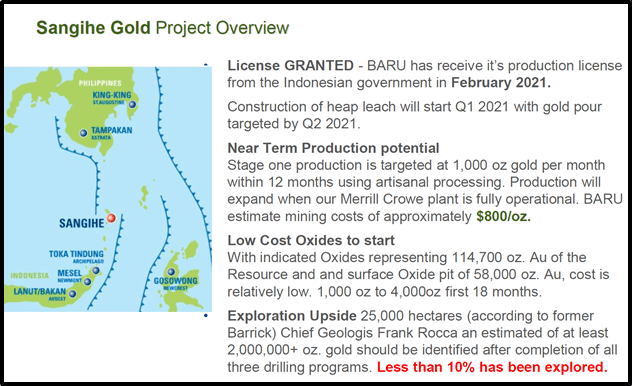
“Baru is in the early stages of implementing its CSR programs,” BARU stated on March 24, 2021, “and has identified eight key community development directives:
1. EDUCATION which includes scholarships, skills training, educator assistance, and educational facilities and training assistance.
2. HEALTH which includes supporting public health, healthcare assistance, and assistance to health facilities and infrastructure.
3. ECONOMY in the form of increased income and jobs in the areas of trade, plantation agriculture, livestock, fisheries and entrepreneurship.
4. ECONOMIC INDEPENDANCE by increasing the capacity of the community to support economic independence, development of micro, small and medium enterprises (MSMEs), and providing opportunities for MSMEs to participate in business partnerships with the Company.
5. SOCIAL AND CULTURAL assistance in the construction of worship facilities and/or infrastructure, relationships with the religious communities, institutional preservation of local customs, culture and wisdom, and when needed, support natural disaster relief.
6. Environmental Management
7. Institutional formation of society
8. Infrastructure Development
In consultation with various community groups, the BARU’s CSR and HR teams will develop a five-year blueprint for community development programs.
Over the last three months the BARU has begun to positively impact the economics of the local villages.
- Recruiting daily workers to improve BARU’s basecamp.
- Purchase of supplies from local suppliers
- Hiring local truck owners
- Contracting a local tailor to produce the 5,200 sample bags required for the drilling program.
- Securing fertilizer supply to assist farmer groups in increasing farming productivity and food supply on island.
“With Environmental, Social and Governance (ESG) rightfully at the forefront of our industry, Baru Gold strives to uphold the highest standard for the mining industry as we advance Sangihe towards cashflow,” stated Filbert.
Looking ahead, BARU has taken the initial steps for post-mining rehabilitation programs “to ensure we leave the mining area free of negative environmental impacts”.
BARU is also talking to three local farmer groups – with 48 members, most of whom are mothers – about planting crops that will be needed once it begins land rehabilitation.
“The positive cashflow—targeting roughly $1,000,000 per month—will allow the Company to self-fund exploration across its extensive land base, augmenting the current ounce count,” wrote Greg Nolan.
And this is where it gets interesting… this resource represents only a fraction of what lies in the Sangihe’s subsurface layers.
Between Binebase and Bawone lies an Inferred resource of 835,000 oz. of gold and 11,926,000 oz. of silver (top right map below).” – End of Nolan.
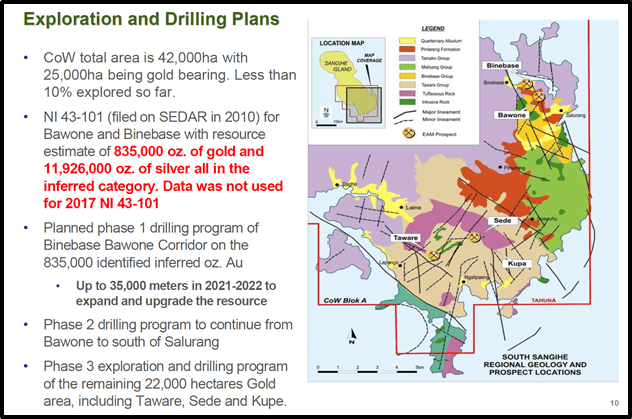
In the vibrant BARU Ceo.ca investor chit-chat room, the CSR community development news was well-received.
“This is the type of news that makes me smile,” wrote @Hilbertk, “Gone are the days of profits above all else”.
“He [Terry Filbert] understands what it takes to do business over there (having been there for 20 years),” wrote @Fanatic “and seems like he is making moves to open up Miwah.”
“Love the fact that Terry is bringing the community together,” wrote @cargo “YOU do that and the chance for $BARU project(s) to succeed increase tenfold:)”
“He is on the right side with gov.ppl,” added @PradaKirk.
In fact, many international observers have a sunnier view of Indonesia, than the Fraser Institute.
“Indonesia is a major player in the global mining industry,” states SSEK Indonesian Consultants, “With its immense mineral reserves and production industry, Indonesia aims to develop an attractive investment climate that is favourable to the interests of both investors and the Indonesian government.”
“The government faces the difficult task of balancing the interests of all stakeholders through legal instruments,” adds SSEK, “and has made a conscious effort to simplify bureaucracy in the mining sector to reinforce Indonesia’s position as a competitive destination for mining investments”.
“By bringing prosperity and benefits to the community that we work in, we show locals mining can and will bring tangible improvements to Indonesia despite challenging times due to COVID-19’s impact on the travel and hospitality industry,” stated Filbert, “This will bolster our operation’s success as we build local and buy local to benefit locals.”
In the last 10 weeks, the spot price of gold has fallen from USD $1,944 to $1,733.
In the same time-period, Baru’s stock price has fallen from .20 to .13.
The “political-discount” applied to this stock may be too high.
- Lukas Kane
Full Disclosure: Baru Gold is an Equity Guru marketing client.

